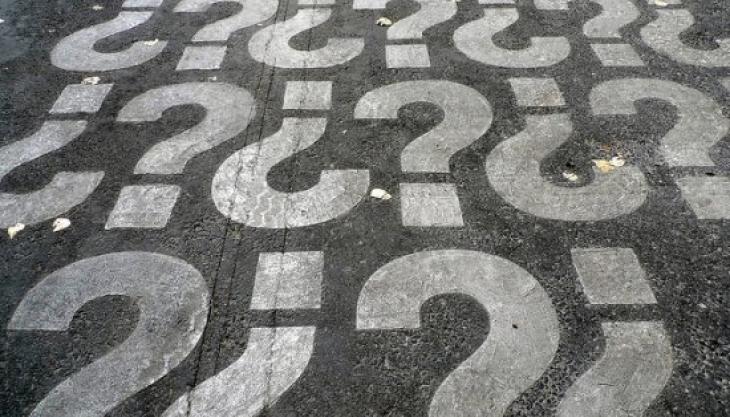Considering Greensboro Bankruptcy? What’s The Difference Between Chapter 7 and Chapter 13?
Submitted by Rachel R on Wed, 05/24/2017 - 10:40am

Questions answered about Greensboro bankruptcy
Image Source: Flickr User Véronique Debord-Lazaro
For North Carolina consumers overwhelmed with debt, Greensboro bankruptcy can be life changing and offers a fresh start. But often, when clients come in to see us for the first time, they aren’t sure how bankruptcy can help them, what bankruptcy options there are, and don’t understand the distinct differences between the two chapters potentially available to them. Here’s a rundown of the differences between Chapter 7 and Chapter 13 and how each can benefit you.
Chapter 7: Faster, Easier, and Cheaper
Between the two consumer chapters of Greensboro bankruptcy, Chapter 7 is faster, easier, and cheaper than Chapter 13. Chapter 7 takes less than six months from filing to discharge and often is even faster and can be completed in three to four months. It’s also easier than Chapter 13 for many reasons.
Chapter 13 requires more paperwork and is an ongoing process. That makes it more complicated and much, much slower. Additionally, the time and complexity result in a greater cost. If you qualify for Chapter 7 bankruptcy, it can get you out of debt quickly and can give you a fresh financial start.
Chapter 13: Better for Issues with Secured Debt
Chapter 7 can give significant relief of unsecured debt such as medical bills, credit cards, personal loans, and some older income taxes. However, if you’re behind on secured debt, such as your mortgage or car loan, Chapter 13 might be much more beneficial to deal with your past-due balances.
If you choose Chapter 13 for your Greensboro bankruptcy, you can catch up on delinquencies. It sets up a repayment plan to catch up missed payments on your mortgage and auto loan over a three to five-year period so that you can keep your assets, catch up on the debt, and enjoy some peace of mind.
Chapter 7: Better for Those with Few Assets, Little Equity
Although Greensboro bankruptcy allows you to shield some of your assets and equity using North Carolina bankruptcy exemptions, Chapter 7 is better for those who either have fewer assets, assets of less value or don’t have a lot of equity in your assets. If you own no assets, Chapter 7 is easier.
If you do own a home, you can shield $35k in equity if you file Greensboro bankruptcy as an individual. If you file jointly with your spouse, you can shield $70k in home equity. There are also exemptions to shield some cash in the bank, standard furniture and personal possessions, and a modest auto.
Chapter 13: You Still Must Pay Some of Your Debts
With Chapter 13, you get on a repayment plan to catch up on secured debts like your mortgage and auto loan. Your unsecured debts, like your credit cards and medical bills, will typically not be paid in full in your Greensboro bankruptcy repayment plan. You will pay a certain percentage of these.
In some cases, you might only have to pay pennies on the dollar of your unsecured debt. But for secured debt, you will have to pay 100% of it over the length of your Greensboro repayment plan for your Chapter 13 case. However, there are some debts that neither Chapter 7 or Chapter 13 will discharge.
Debts That Survive Either Bankruptcy Chapter
There are some debts that consumers cannot overcome in Greensboro bankruptcy. If you owe income taxes from the last year or two, those cannot be discharged. If you owe child, support, alimony, or similar obligations through a judgment in family court, that can’t be lessened or discharged in bankruptcy.
If you owe fines for criminal charges or certain other court fees and charges, these generally cannot be discharged in either bankruptcy chapter. In summary, Chapter 7 offers greater debt relief in a faster time while Chapter 13 is better suited for those with past-due debt on secured debt.
To find out more about the benefits of Greensboro bankruptcy, contact the Law Offices of John T. Orcutt. Call +1-833-627-0115 now for a free consultation at one of our convenient locations in Raleigh, Durham, Fayetteville, Wilson, Greensboro or Wilmington.
Debts Hurt! Got debt? Need help? Get started below!
Serving All of North Carolina
- Bankruptcy Attorneys Raleigh NC (North)
- Bankruptcy Attorney Fayetteville NC
- Bankruptcy Attorney Durham NC
- Bankruptcy Attorneys Wilson NC
- Bankruptcy Attorneys Greensboro NC
- Bankruptcy Attorneys Southport NC
- Bankruptcy Attorneys Wilmington NC
Bankruptcy Attorneys Raleigh NC (North)
6616 Six Forks Rd #203 Raleigh, NC 27615 North Carolina
Tel: (919) 847-9750

Bankruptcy Attorney Fayetteville NC
2711 Breezewood Ave Fayetteville, NC 28303 North Carolina
Tel: (910) 323-2972

Bankruptcy Attorney Durham NC
1738 Hillandale Rd Suite D Durham, NC 27705 North Carolina
Tel: (919) 286-1695


Bankruptcy Attorneys Greensboro NC
2100 W Cornwallis Dr. STE O Greensboro, NC 27408 North Carolina
Tel: (336) 542-5993

Bankruptcy Attorneys Southport NC
116 N Howe St. Suite A Southport, NC 28461 North Carolina
Tel: (910) 218-8682

Bankruptcy Attorneys Wilmington NC
116 N. Howe Street, Suite A Southport, NC 28461 North Carolina
Tel: (910) 447-2987
